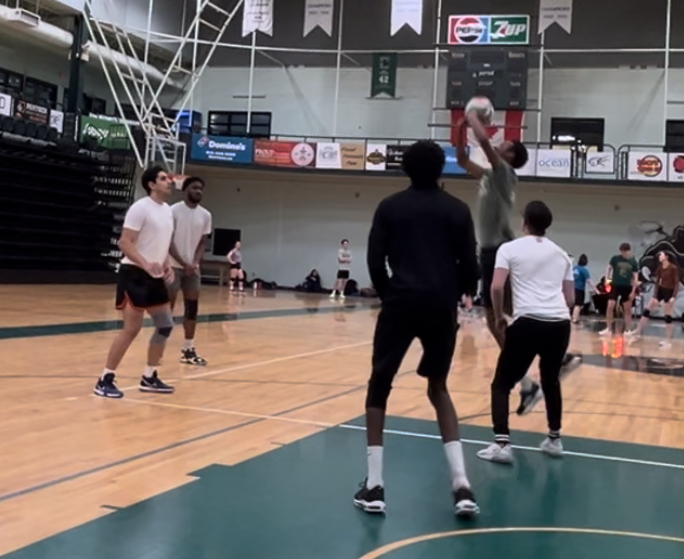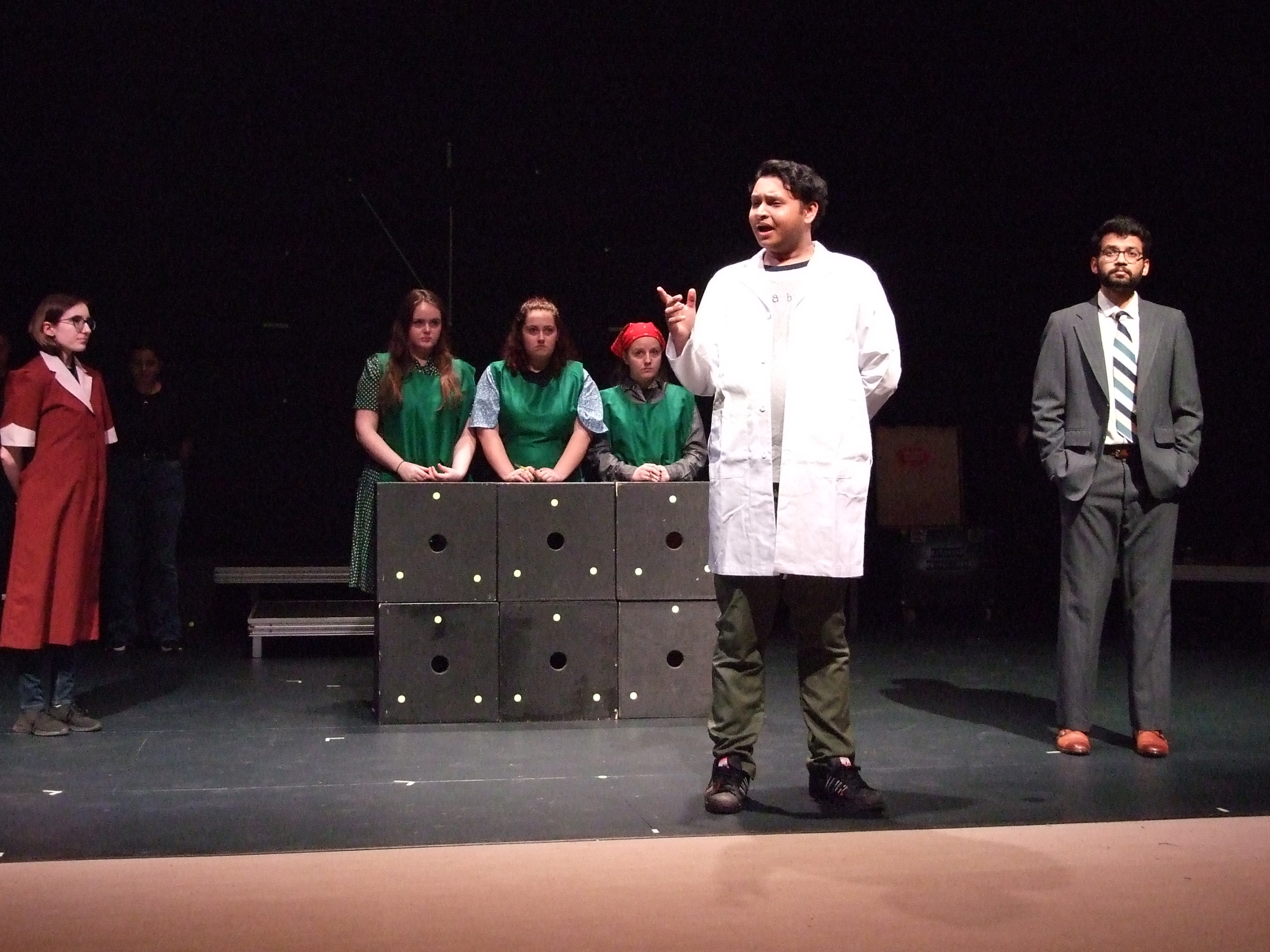UPEI Graduate Student Aims to Save PEI Potato Fields through AI
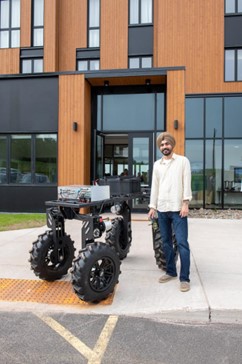

The early developments stage of the agricultural robot. Photo provided by Charan Preet Singh.
In the heart of Prince Edward Island, amidst the potato fields that define our
community, something remarkable is quietly coming to life.
Picture a modest robot, unassumingly winding its way through the
rows of potato plants. It’s not a scene from a sci-fi flick; it’s the brainchild of
Charan Preet Singh, a driven Master’s student in Sustainable Design
Engineering at UPEI.
For years, local farmers have battled the Potato Virus Y (PVY), a menace that
threatens their potato
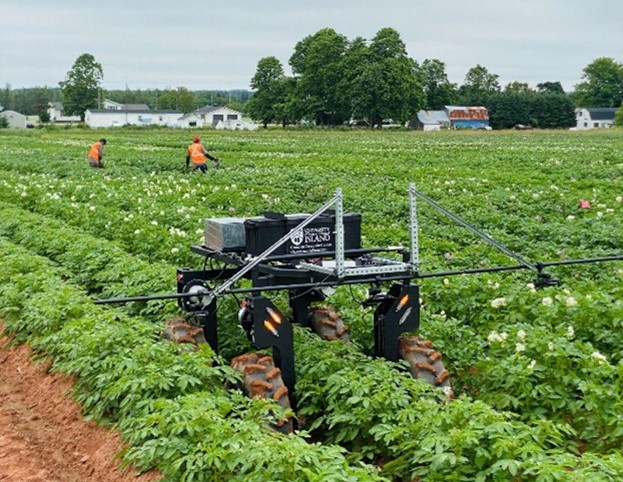
Agricultural robot in the P.E.I. potato field. Photo provided by Charan Preet Singh.
yield. Such threats have grown exponentially, worrying
the PEI Potato farmers. Faced with this challenge, Charan took it upon
himself to make a difference. Collaborating with the Potato Board of PEI and
guided by the visionary Aitazaaz Farooque, Interim Dean of the School of
Climate Change and Adaptation, he set out to create something truly
groundbreaking.
The idea was elegantly simple: craft a robot armed with cameras and artificial
intelligence to pinpoint

Charan Preet Singh with his agricultural robot. Photo provided by Charan Preet Singh.
even the slightest signs of PVY. But behind this
simplicity was a world of complexity. Charan spent PEI’s brief summers
collecting invaluable data, partnering with local farmers, and venturing into
New Brunswick. His goal? Gathering over 100,000 images, essential for
training the robot’s perceptive eye via Machine Learning algorithms.
As the robot took shape after through ideation and design process, it
became more than a marvel of mechanics. It became a testament to human
imagination, a blend of technology and practicality. With its trio cameras, it
could assess three rows of potatoes while cruising at 5 kilometers per hour.
This unassuming machine wasn’t here to replace human effort; it was here to amplify it.
At its core, Charan’s project has been a potato-saver. It doesn’t just spot infected crops; it highlights them, giving our farmers precise locations within
the field. It’s a tool that empowers, making the challenging task of roguing—
removing the infected plants—more manageable and efficient.
Consequently, it would maximize the potato yield as it speeds and simplifies
the rouging process.
Charan dreams of a future where his project doesn’t just identify problems; it
solves them autonomously. Envision a world where these robots
independently remove the infected crops, leaving our PEI potato fields
healthier and more fruitful.
Currently, Charan’s robot stands at the edge of possibility. It’s a work in
progress, a testament to his determination and insight. Final testing is just
around the corner, with a launch anticipated in the summer of 2024.
In our beloved PEI, where the fields echo tales of hard work and
perseverance, Charan’s robot isn’t just a technological feat. It’s a promise—a
promise of a more sustainable future for our agricultural community.
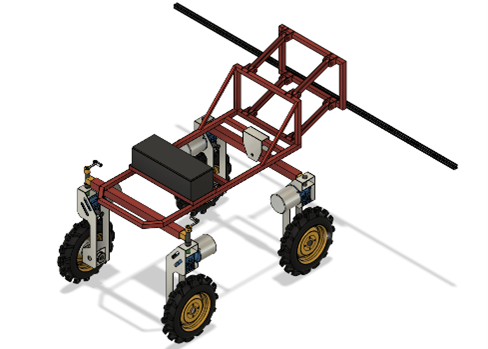
Conceptual design of the agricultural robot. Photo provided by Charan Preet Singh
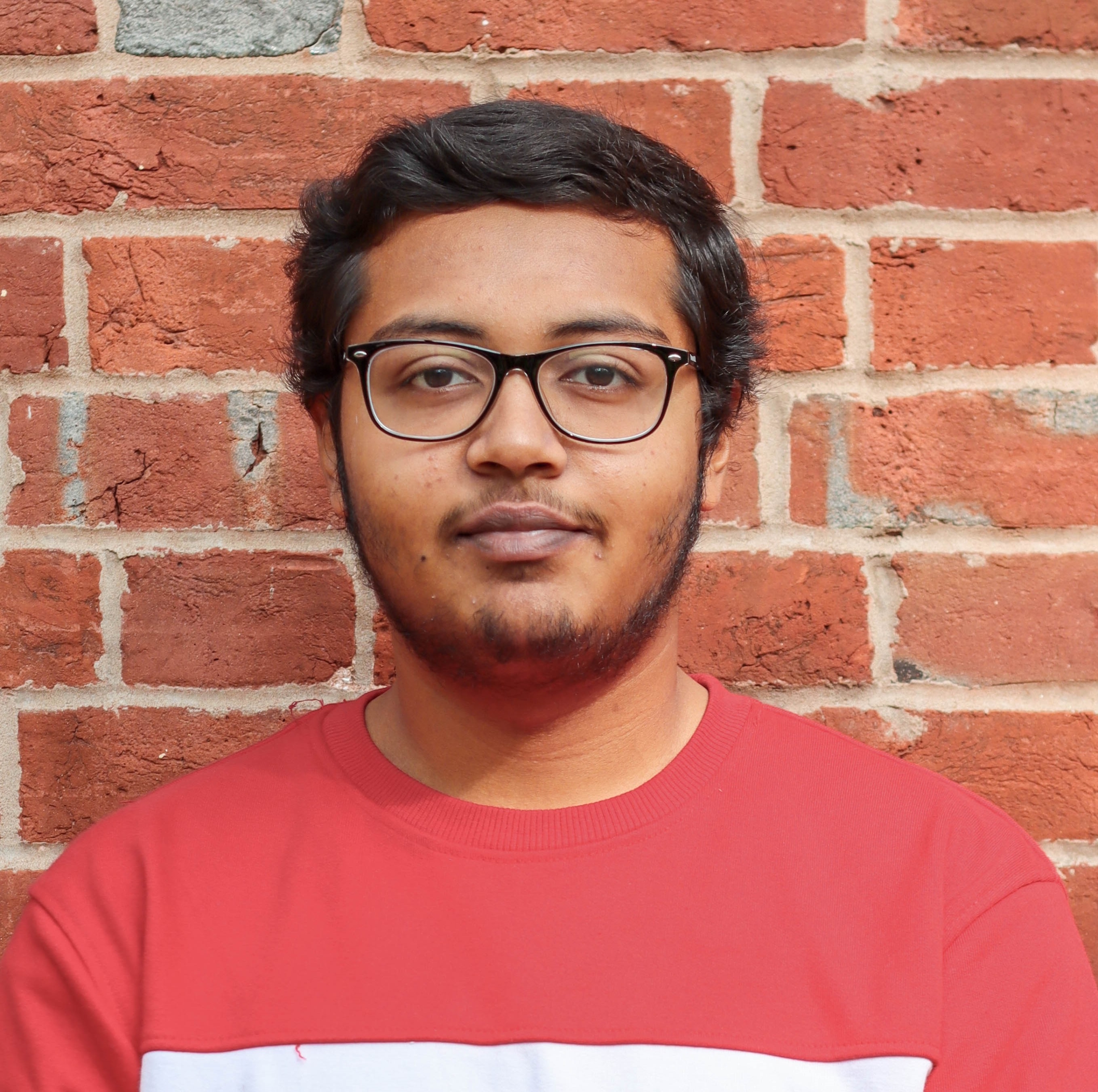
By: Syed Imran
Managing Editor



